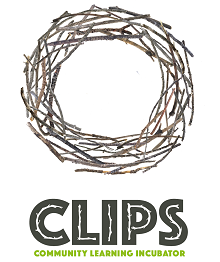There is no group where meetings are not a necessity for creating focus on relevant issues, whether operative, administrative or social. Appropriate format for each kind of meeting is ensured by good facilitation. Facilitation ensures that everyone gets a chance to speak and to be heard, that the time dedicated to different topics is in the right proportion to their importance, and that everything that needs to be discussed is discussed.
In many group projects meetings start with a short check-in, during which participants briefly share their feelings, inner states and personal issues and “land” in the present moment. This takes time but it generally makes the future discussions a lot easier. Group projects are really about people; by encouraging personal expression the group keeps people in its centre. Check-out works similarly as a round-up of the meeting where people express how they felt about it, about the group, or about the future, in what mood they are leaving, did anything change etc. Starting together, ending together.
Depending on the occasion and availability of time the beginning or the end of the meeting can include a common meal or drink when informal personal exchange with other members can take place. People often use such opportunities to have a talk with those members they usually do not get a chance to communicate with.
Meetings do not necessarily take place only to make decisions, they are also spaces for sharing views and ideas and participating in co-creative processes. They can be utilized as spaces for collective learning.
Groups that start and end meetings with a song tend to have stronger feeling of cohesiveness. A tool like the mindfulness bell reminds people of the power of silence, and how intentional pauses in the flow of arguments work in favour of the group.
Here only some of the less common elements of meetings have been described.
Such elements seek to improve general elements such as: well structured agenda, minute keeping, maintaining a log of all key decisions and agreements etc.
If discussion becomes very emotional, this is often a sign that there is something underneath factual arguments and is a sign of a potential conflict. It is difficult to deal simultaneously with emotional sides of an issue and speak on the level of facts. Emotions that come in the way of reasonable argument should be dealt with on specific meetings for deep sharing, where they can be expressed and explored.

